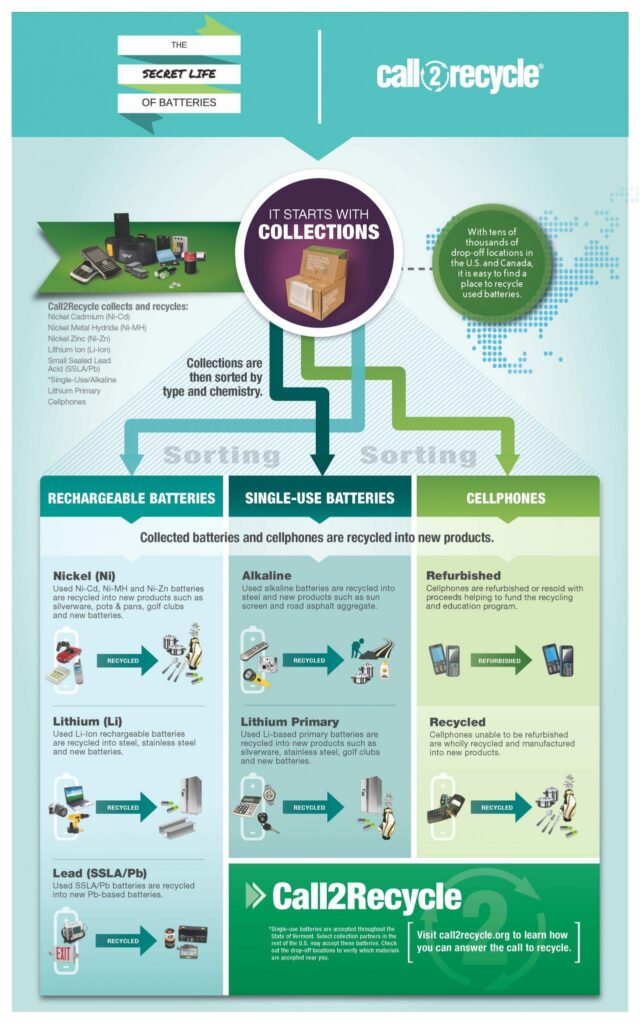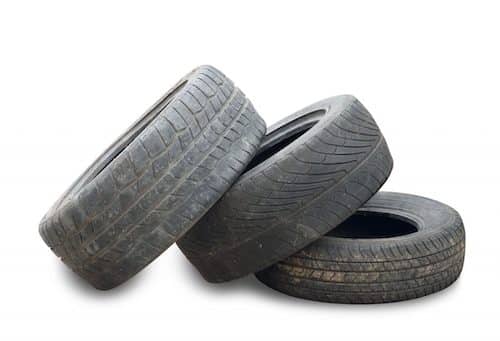SHHH. WE WANT TO SHARE SOME BATTERY SECRETS.
We all have those random drawers in our homes filled with all kinds of batteries. We buy thinking we will need more than we need and then realize, they are dead! Now what do you do?
For our purposes here today, we will focus on the most common batteries you might encounter based on how to recycle them.
Do not place batteries of any kind in your curbside recycling. Placing batteries in curbside recycling is hazardous and dangerous. They can be recycled or properly disposed of in other ways.
Primary/single-use alkaline batteries are not hazardous and can be disposed of in the regular trash once they wear out. If you prefer not to throw your alkaline batteries in the regular trash, you can purchase a battery collection box from Call2Recycle. We are not aware of any free recycling options for alkaline batteries.
Alkaline, silver oxide, zinc-air, zinc-carbon and zinc-chloride, commonly known as AA, AAA, 9V, D-cell, and button cell, are all types of primary batteries. They are classified by the federal government as non-hazardous waste. Alkaline batteries are composed primarily of common metals (steel, zinc and manganese) and do not pose a health or environmental risk during normal use or disposal. Primary/single-use batteries are most commonly used in low-drain devices, such as flashlights, clocks, watches, remote controls and smoke detectors.
Rechargeable batteries can be recycled for free through local Call2Recycle drop boxes, found in retail stores such as Home Depot and Lowe’s Home Improvement. The drop boxes accept Ni-MH, Ni-Cd and Lithium/Li-ion batteries.
Be sure to safely prepare your rechargeable batteries for recycling. There are two options: Bag or tape. Option A: Bag each battery in its own clear plastic bag before placing it in a storage container. Option B: Tape the terminals with clear packing, non-conductive electrical or duct tape, keeping the label visible. See more battery recycling tips from Call2Recycle.
Nickel Metal Hydride (Ni-MH) and Nickel Cadmium (Ni-Cd) batteries can typically be found in cordless power tools, digital cameras, two-way radios and cordless phones.
Small Sealed Lead Acid (SSLA/Pb) can typically be found in emergency devices, emergency exit signs, security systems, mobility scooters and UPS backups.
Lithum and Lithium ion (Li-ion) can typically be found in cell phones, laptops, two-way radios and cordless power tools.
Lead acid batteries are recyclable and may dropped off at many locations around teh Stark-Tuscarawas-Wayne Recycling District. To find a location, click here. These batteries contain lead and sulfuric acid and are used as a source of power. They are mainly used in vehicles but are also found power supply units.. Ohio law prohibits the disposal of lead acid batteries in landfills. The law also requires wholesalers and retailers of lead acid batteries to take your old battery for recycling when you buy a new one. Batteries that are covered by the law include batteries used in vehicles, motorcycles, wheelchairs, boats or other forms of motive power.
If you find yourself wondering about some other batteries you have and what to do with them, visit the following sites for more information:
5) sustainableelectronics.org/



